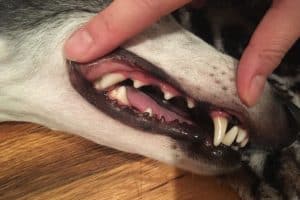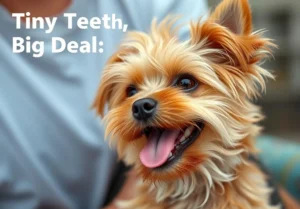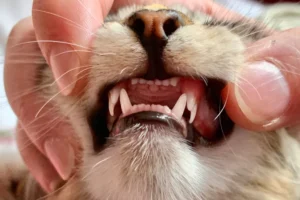Have you ever noticed your cat grinding her teeth after finishing a meal? It can be a concerning behavior to witness as a pet owner, leaving you wondering about the cause behind it. In this blog post, we will explore the reasons why your cat may be grinding her teeth after eating and what you can do to address this issue.
Possible Dental Issues
Does your feline friend seem to be grinding her teeth after chowing down on her meals? This behavior could be a sign of underlying dental issues that need attention. Tooth decay and gum disease are common culprits behind teeth grinding in cats. Just like us, our furry companions can suffer from tooth decay, which can lead to discomfort and even pain when eating. Additionally, gum disease can cause inflammation and irritation in your cat’s mouth, prompting her to grind her teeth in an attempt to alleviate the discomfort. If you notice your cat grinding her teeth after meals, it’s crucial to schedule a visit to the veterinarian for a thorough dental examination to address any potential issues promptly.
Nutritional Deficiencies
While dental problems are a common cause of teeth grinding in cats, nutritional deficiencies can also play a significant role in this behavior. A lack of essential nutrients in your cat’s diet can lead to various health issues, including dental problems such as weak teeth or enamel erosion. To ensure your cat is receiving a balanced diet, it’s essential to provide her with high-quality cat food that meets her nutritional needs. Look for food that is specifically formulated to support dental health, as well as supplements like Omega-3 fatty acids that promote overall wellbeing. Consulting with your veterinarian can help you determine the best diet plan for your cat and address any potential nutritional deficiencies that may be contributing to her teeth grinding habit.
Remember, a healthy diet is the foundation of your cat’s overall health, including her dental wellbeing. By taking steps to address any potential dental issues and ensuring she receives the nutrients she needs, you can help your feline friend maintain a healthy smile and prevent teeth grinding after meals.
For more information on cat dental health, check out this helpful resource: American Veterinary Dental College.
Stress and Anxiety
Have you noticed your cat grinding her teeth after mealtime? This behavior could be a sign of stress or anxiety. Cats can experience stress from changes in their environment, routine, or interactions with other pets. If your feline friend is feeling anxious, she may exhibit teeth grinding as a way to cope with the overwhelming feelings. To help reduce your cat’s stress levels, create a calm and secure environment for her. Provide plenty of hiding spots, vertical space to climb, and interactive toys to keep her entertained. Additionally, consider implementing a regular feeding schedule and incorporating playtime into her daily routine to alleviate anxiety.
Medical Conditions
Teeth grinding in cats can also be a symptom of underlying medical conditions such as temporomandibular joint disorder (TMJ). This condition affects the jaw joint and muscles, causing pain and discomfort when eating. If you suspect your cat’s teeth grinding is due to a medical issue, it’s essential to consult your veterinarian for a proper diagnosis and treatment plan. Your vet may recommend a thorough examination, including X-rays, to identify the root cause of the problem. Treatment options may include pain management, dietary changes, or potential surgery depending on the severity of the condition.
Additional Unique Insight: In some cases, dental problems such as tooth decay or gum disease can contribute to teeth grinding in cats. Regular dental check-ups and professional cleanings are essential to maintain your cat’s oral health and prevent any discomfort or pain that may lead to teeth grinding after eating. Be sure to discuss your cat’s dental care with your veterinarian during routine check-ups to address any potential issues promptly.
Remember, observing changes in your cat’s behavior, like teeth grinding after eating, is crucial for identifying potential issues early on. By staying attentive to your feline companion’s habits and seeking veterinary care when needed, you can ensure her overall well-being and happiness.
Behavioral Reasons
Does your cat tend to grind her teeth after eating? This behavior could be a sign of boredom or frustration. Like humans, cats can experience stress or anxiety that may manifest in teeth grinding. To address this issue, try providing interactive toys or engaging activities to keep your cat mentally stimulated. Additionally, creating a comfortable and stress-free environment can help alleviate any underlying behavioral issues that may be causing your cat to grind her teeth after meals.
Treatment Options
If your cat continues to grind her teeth after eating, it is essential to explore different treatment options. Schedule a veterinary dental cleaning to rule out any oral health issues that may be contributing to the behavior. Dietary changes, such as offering dental-friendly treats or incorporating dry food into your cat’s diet, can also help improve oral health and reduce teeth grinding. Furthermore, implementing stress-relief techniques, such as soothing music or pheromone diffusers, may assist in calming your cat and preventing teeth grinding episodes.
Additional Insight: In some cases, teeth grinding in cats may be a sign of an underlying medical condition, such as dental disease or temporomandibular joint (TMJ) issues. It is crucial to consult with your veterinarian to rule out any potential health concerns and explore appropriate treatment options.
When to See a Veterinarian
If you notice your cat grinding her teeth after eating persistently or excessively, it could be a sign of a dental problem or underlying health issue. Persistent teeth grinding may indicate dental pain, oral discomfort, or dental disease. Additionally, excessive teeth grinding can also be a sign of stress or anxiety in your feline friend. To be safe, it’s crucial to consult a veterinarian if you observe these behaviors.
During a veterinary visit, your vet will examine your cat’s teeth and oral health to determine the underlying cause of the teeth grinding. They may recommend X-rays, dental cleanings, or other treatments depending on their findings. Early detection and treatment of dental issues can prevent pain and discomfort for your cat, so don’t delay in seeking professional help if needed.
Preventative Measures
To prevent teeth grinding in your cat and promote her overall dental health, it’s essential to schedule regular check-ups with your veterinarian. During these visits, your vet can monitor your cat’s dental health and address any issues early on. At-home care routines such as regular teeth brushing can also help prevent dental problems and reduce the likelihood of teeth grinding.
Diet plays a significant role in your cat’s dental health, so make sure to provide quality cat food and dental treats to support her oral hygiene. Chewing toys and dental toys can also help keep your cat’s teeth clean and healthy. By taking these preventative measures, you can minimize the risk of teeth grinding and ensure your cat’s teeth and gums stay healthy.
Extra Tip: Plaque buildup on your cat’s teeth can contribute to teeth grinding. Consider adding dental water additives or dental gels to your cat’s oral care routine to help reduce plaque and tartar accumulation.
By understanding the possible reasons behind your cat’s teeth grinding after eating, you can take proactive steps to address the issue and ensure your feline friend’s continued well-being and comfort.
Alex, a passionate animal lover, has experience in training and understanding animal behavior. As a proud pet parent to two dogs and three cats, he founded AnimalReport.net to share insights from animal experts and expand his knowledge of the animal kingdom.




